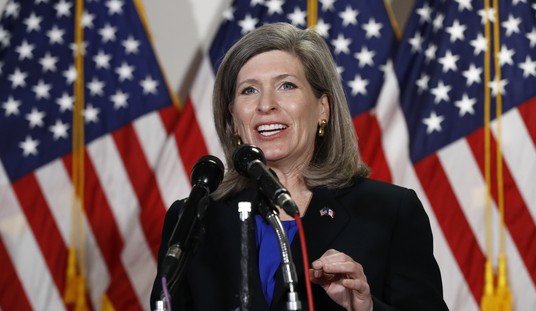Consider this box checked. In fact, consider it checked three times, thanks to Dianne Feinstein’s insistence on repeating the same question while promising to rephrase it. Before she gets around to asking it, Feinstein recalls the “trips to Mexico” made by women seeking abortion, and then cites Ruth Bader Ginsburg’s defense of abortion in her 1993 confirmation hearing. “I hope you will be equally forthright in your answers,” Feinstein warns Amy Coney Barrett.
Nice try:
Barrett declines to say whether she believes Roe v. Wade was wrongly decided or should be overturned: "I completely understand why you're asking the question, but again, I can't pre-commit or say, 'Yes, I'm going in with some agenda,' because I'm not" https://t.co/NN41m4Si1f pic.twitter.com/LRkP8hFdFB
— CBS News (@CBSNews) October 13, 2020
“I guess I’ve gone as far as I can,” Feinstein finally concedes after Barrett offers the same answer three times — that she can’t take a position on an issue that’s likely to come before the court. Ginsburg did, as Feinstein noted, but that was arguably improper, although it didn’t keep her from winning confirmation on a 96-3 vote in 1993. It would be as improper as Barrett pledging to protect landlords in fights against tenants, or pledging to support or oppose firearm owners.
That’s because it’s not the role of the judiciary to deal with those policies. That responsibility belongs to the legislature, which voters can hold accountable for their actions. That’s where Feinstein is in serious error; neither Roe nor Casey are “law” in a statutory sense, but they should have been if courts are supposed to “defend” them as Feinstein suggests.
Ironically, as I mentioned yesterday, Ginsburg herself made the same argument in declaring Roe faulty:
For Ginsburg, the landmark 1973 Supreme Court decision that affirmed a woman’s right to an abortion was too far-reaching and too sweeping, and it gave anti-abortion rights activists a very tangible target to rally against in the four decades since.
Ginsburg and Professor Geoffrey Stone, a longtime scholar of reproductive rights and constitutional law, spoke for 90 minutes before a capacity crowd in the Law School auditorium on May 11 on “Roe v. Wade at 40.”
“My criticism of Roe is that it seemed to have stopped the momentum on the side of change,” Ginsburg said. She would’ve preferred that abortion rights be secured more gradually, in a process that included state legislatures and the courts, she added. Ginsburg also was troubled that the focus on Roe was on a right to privacy, rather than women’s rights.
At this stage, though, what does being coy about this buy? If Barrett plans to approach cases in this way, then this is a fine answer. But if she really thinks Roe is wrongly decided, why not say so? Playing coy won’t buy a 96-3 vote for her confirmation; Barrett will get no more than 55 votes on the Senate floor, and likely less than that, under any circumstances. But she won’t get less than 51 either, so what’s the point?







Join the conversation as a VIP Member